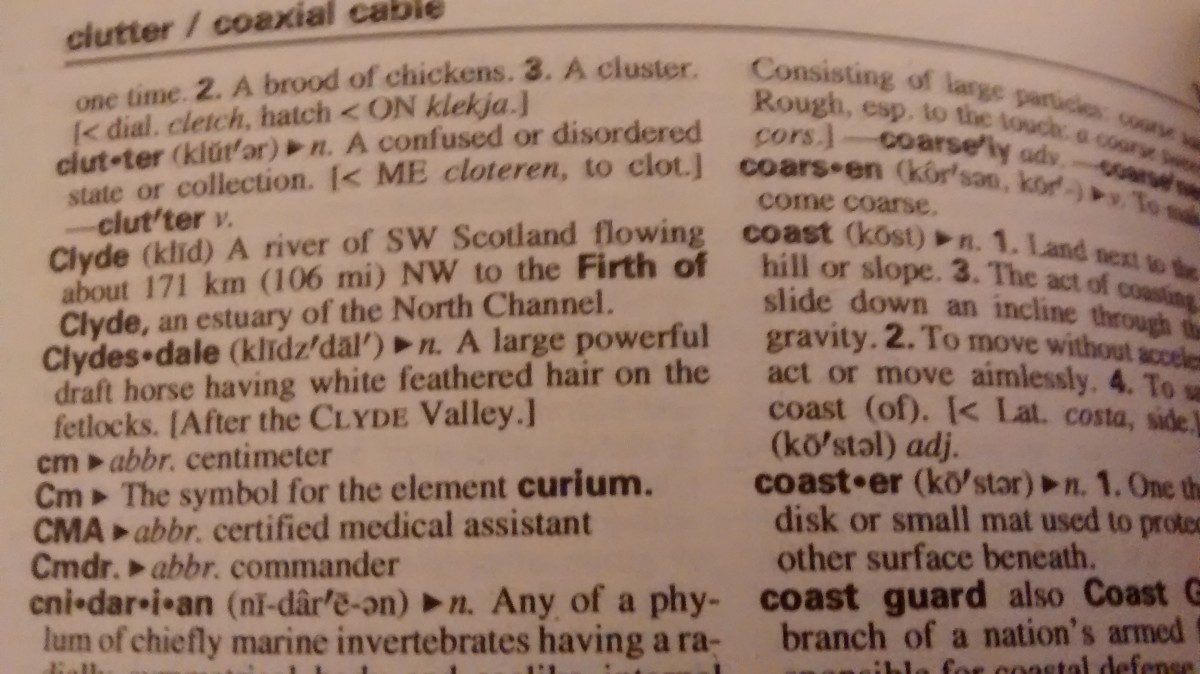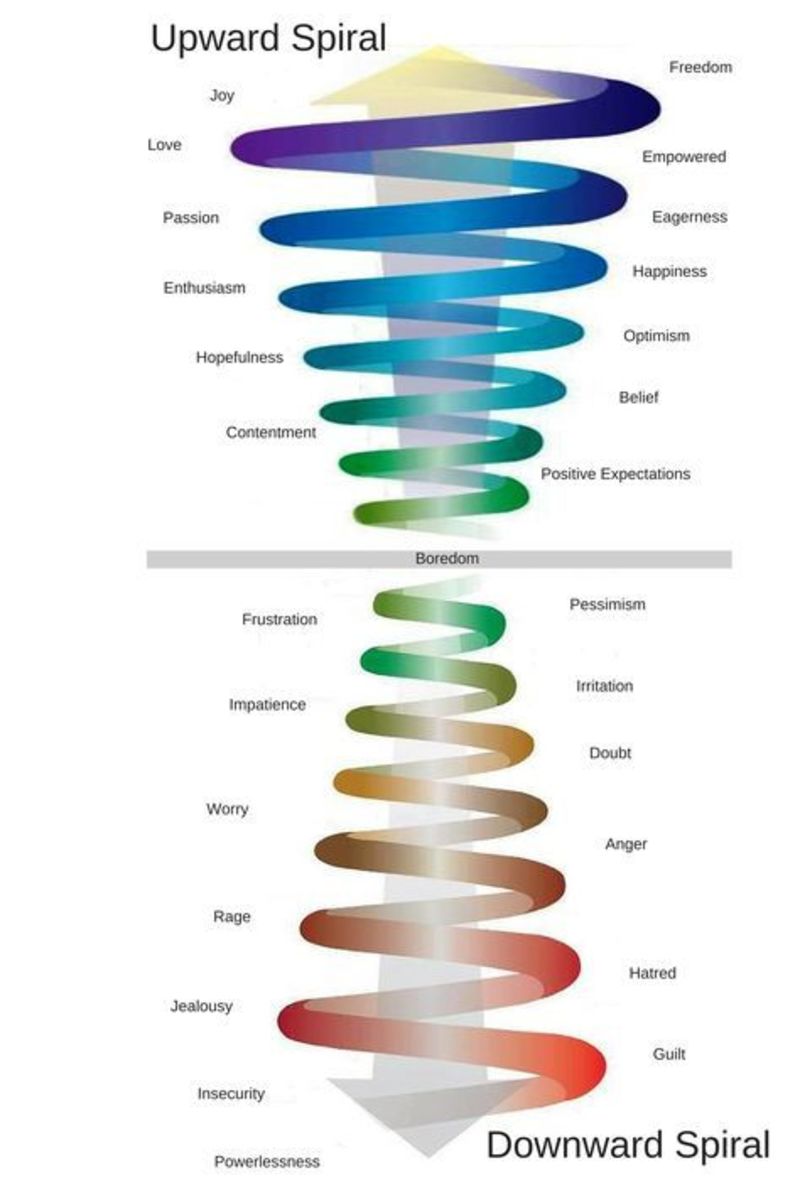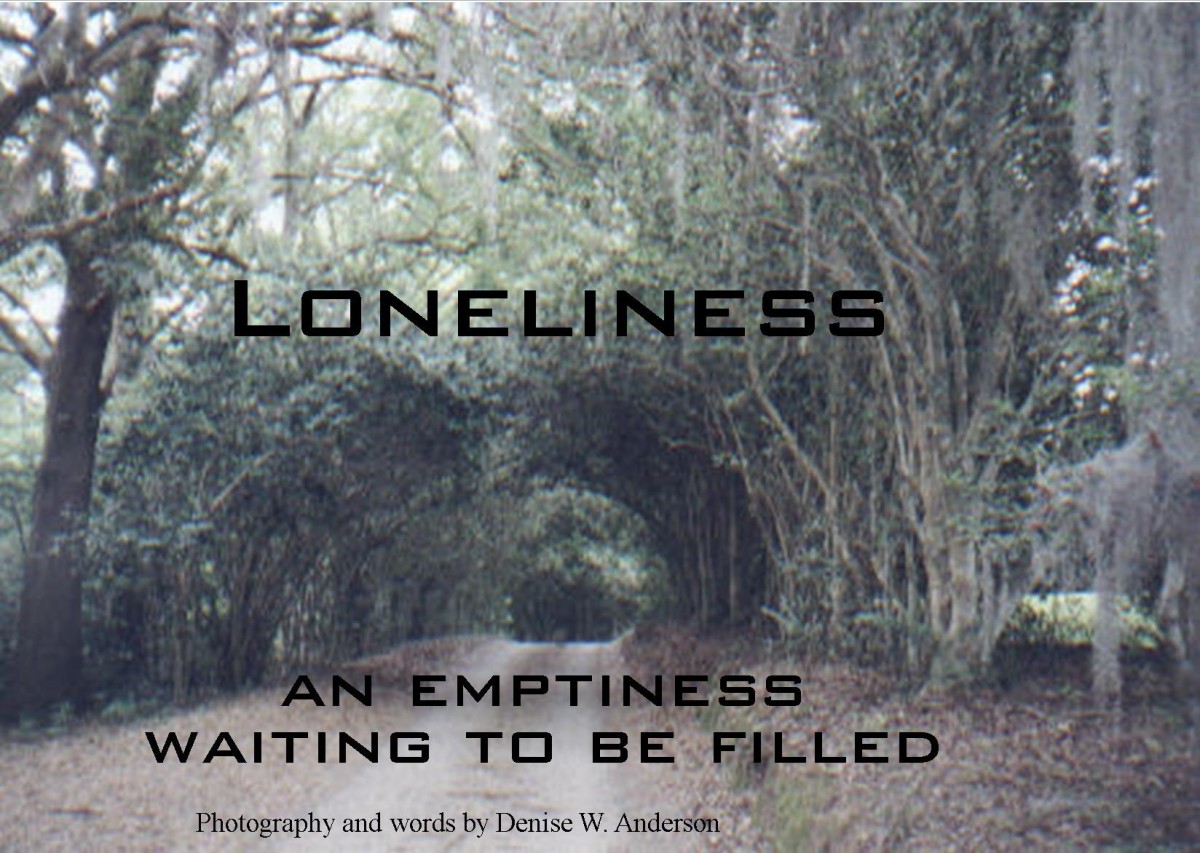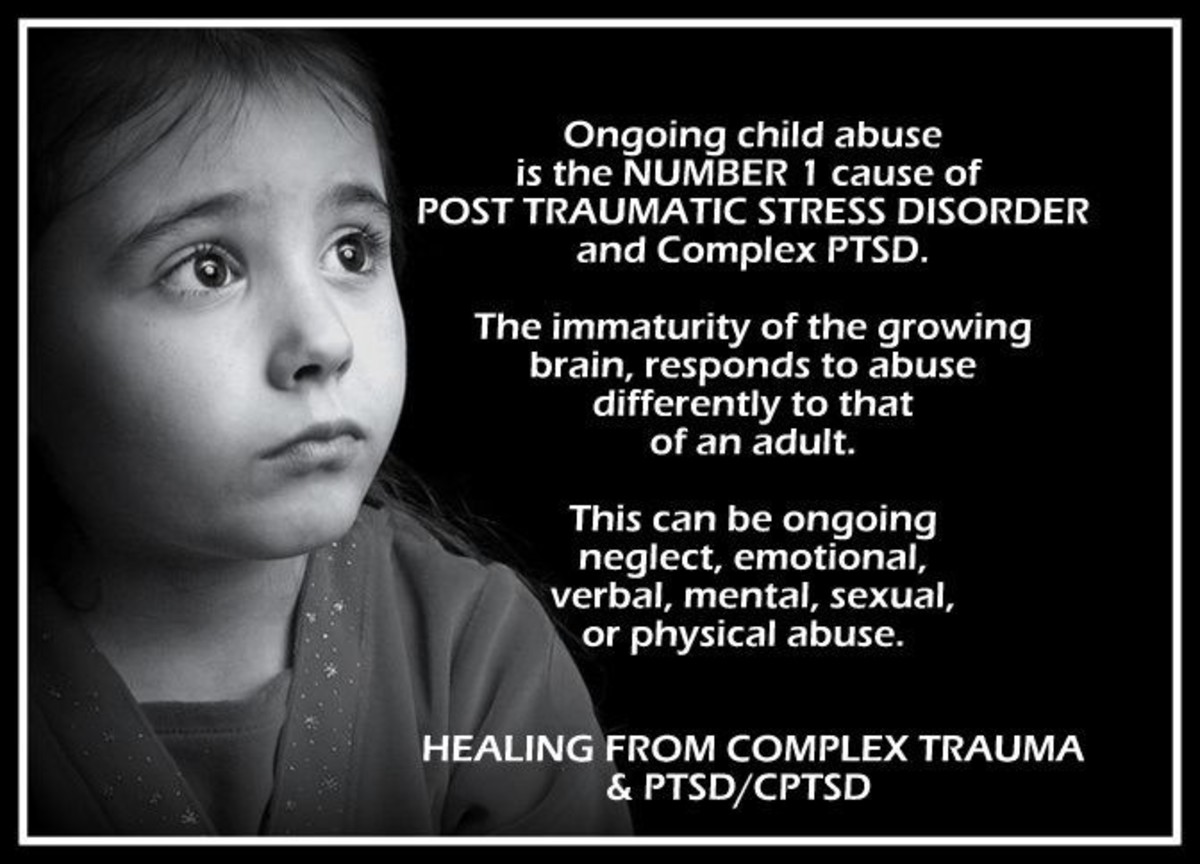- HubPages»
- Health»
- Mental Health»
- Emotions
Emotions and Clutter
Clutter and Feelings

The Negative Effects of Clutter
Our emotions are connected to our environment. Having a comfortable neat surrounding, helps ourselves in many ways. Sometimes we are afraid to throw things out because we are afraid of the future. Sometimes we hold onto things because we feel like something is lacking. Too much stuff blocks our energy in many ways. Letting go of clutter is a matter of realizing that we don’t need these things because we believe our needs have been met.
Clutter also keeps other people at a distance unconsciously and creates isolation. Clutter can overwhelm people.
People who keep their homes cluttered, may be suppressing their feelings. The clutter sucks up their energy and leaves little room to think and feel. People who fear intimacy, loneliness, or feel a sense of loss keep their spaces filled with stuff. Clutter can block awareness and interfere with honest emotions.
Having a poor self image and not respecting ourselves is what clutter does to us. To live in a neat home is to honor ourselves and our space. Cleanliness and orderliness help us to feel better about everything. The more clutter that is around, the more the rooms get out of control and this perpetuates feelings of low self esteem. Reinforcing and validating these negative feelings is self sabotage.
Some people have trouble saying no to other people. They have no personal boundaries, and become overwhelmed as they continue to overextend themselves. Being over committed can add to stuff accumulating.
De-clutter Your Space
The Psychology of Clutter
Some people tie who they are with the objects they own. Too much stuff from the past can hold you back.
Clutter clogs creativity. People clutter for a reason. It becomes easier to get rid of clutter when we understand the reason we do it.
When we give ourselves permission to go forward, we will be better prepared to unclutter our space. Getting rid of clutter on a permanent basis involves being aware and conscious of what we are doing as we clear our space. Getting rid of clutter starts by visualizing what we want for ourselves. Creating good energy flow will give us balance, peace, and harmony. An inviting environment can support us in many ways. Make your environment welcoming.
Clutter is directly connected to how we feel about ourselves, our beliefs, changes that have happened and those yet to be. Being clutter free improves our feeling of safety and the possibilities we have for ourselves.
Our external environment is a reflection of what is going on within us.
Environments can be calming or they can be stressful. Cluttered areas add to our stress levels. Our home should reflect who we are and the best we can be. By holding onto things that don’t serve a purpose for us, we are not trusting that the universe will give us what we need. Clutter causes constriction. Constriction causes us to lose energy and miss opportunities.
When we hold onto to things, it sometimes comes from a fear of what could happen if we let things go. The psychology behind clutter, we hide the bigger issues we don’t want to deal with. Achieving things, and going after what we really want could be scary to us. Through clutter we can conceal the way we feel stuck in life. Clutter affects us beyond our environment. It interferes with our abilities, our relationships, our wellbeing, our business, our health, and our sense of self.
The best news is that when we start to get rid of the clutter, we can reap immediate powerful results. Almost immediately we will feel a newfound sense of relief. We will feel a sense of freedom and pride as we make our environment neater.
The Deeper Causes of Being Disorganized
Lack of trust starts a cycle of holding ourselves back on many levels. The life we want for ourselves when we free ourselves from the clutter that is holding us back.
Clutter interferes with our abundance and our financial success. Clutter stops the flow of energy in everything in our lives. Allow the abundance to enter your lif. Open up the flow and let good things enter your home. Throw out things. Stuff is holding you back .
Clutter has a lot to do with a poor ego and self image. Indecisiveness is also a factor in living in a cluttered environment. The psychology of space and stuff and our relationship to it, has a lot to do with our emotions and what is going on in our minds.
Ideally, our home is should be a safe place to be, a sanctuary, a place to protect us against the world. Getting rid of clutter is often a matter of doing one positive small and simple change that leads to a more organized and neater environment. Your reward is a better life.
What does guilt, shame, attachment, grief and other psychological emotions have to do with holding onto things we no longer need. Clutter is often a sign of other psychological issues. Clutter immobilizes us, fear of making an incorrect decision, guilt for getting rid of something, feelings of regret and loss, and a feeling of need that makes us hold onto things.
There are deeper causes for disorganization than just what we see on the surface. People who clutter are usually in pain. If the items in the rooms do not enhance their lives, or make them feel stuck, it is often cathartic to get rid of it. Getting rid of clutter can transform your life. Growing up in a messy house teaches bad habits that can carry over for a lifetime.
The Different Types of Clutter
Clutter can be classified into four types:
- Technical clutter - is when there is a lack of storage space. Not having enough room for all the stuff causes space restrictions
- Life changes - anything that comes from major life events. From a new baby to a move, to a death, to a job change, to children going off to college can make things go out of balance.
- psychological and behavioral factors - depression, anxiety, attention deficit disorder, poor self esteem
- time management - some people just need to strategize better.
Clutter caused by psychological issues are the most difficult to resolve.
Organization involves - elimination, categorization, organization.
Some organization experts suggest starting with the closets in your home will help begin the process of uncluttering your home.
Use storage containers to rearrange the places you now keep your stuff. Make sure you have access to the things you use regularly and put all the rest out of the way.
Handle your papers once so they don’t accumulate. When a paper comes across your desk or in the mail: toss, file, give it to someone else or mail it write away. Do the same with your email and voice messages.
When deciding which of your stuff you will keep or throw out ask these questions:
- has it expired
- am I using it
- is it a duplicate
- is it a good fit
Clutter Keeps Us Stuck in the Past
Many people don’t realize how clutter is holding them back and how their disorganization affects them, until after they have cleared out the space. Clutter is an energy sapper. Clearing up the area actually can energize you and give you a new vitality.
Clutter keeps you stuck in the past. When you are dealing with stuff around you, and your space is filled up, you have no room for new things to enter your life. Seeing your stuff can make you think of the past and keeps you stuck in time, unable to see a better tomorrow or create a way to move forward.
Clutter is a form of protection. People who clutter are unconsciously cushioning themselves against their emotions that may be too difficult for themselves to handle. People who clutter may falsely believe that they are in control of things and therefore don’t have to deal with the things that are affecting them deeply.
Clutter makes things more confusing. It is hard to think clearly, to have clarity of vision and make decisions more easily. Having an environment that is free of clutter is one of the best ways to discover more about yourself.
Clutter dishonors your home and dishonors you. People treat you the way you treat yourself. When you value yourself, others value you. When you allow clutter to accumulate you may be attracting others who mistreat you because you are sending out messages that you don’t value yourself much.
Clutter causes shame. A messy home can make some people feel ashamed to have people over. This causes more isolation and loneliness.
The Comfort of Clutter
Our personalities are connected to our behavior, which is correlated to our needs. Some needs sit on an unconscious level, so we are not fully aware of them. These needs tend to be deeply rooted in our nature, and play a significant role in our personality.
Clutter is not the problem, it is usually a symptom. Clutter is the physical expression of what is going on within us. Having the discipline to put things away will organize your environment temporarily. Having greater knowledge about our feelings may give us a greater desire to keep our environment neat without much effort. Clutter is often associated with anxiety and depression, in addition to OCD and ADD.
Understanding our emotional behavior and having greater self awareness combined with learning organizing techniques is the best way to make lifelong changes. The clutter around is symptomatic of the feelings within. It is tough to deal with these feelings, but certainly worth sorting it out.
Take care of our emotions and our clutter will disappear. This is easier to say than to do. Our emotions are complicated. Our feelings run deep. The psychology of ourselves is multifaceted There things we would rather not deal with, out of fear, out of not knowing what to do with the feelings, out of the great amount of work it takes to challenge and conquer these feelings.
We find comfort hiding behind the clutter because of the great difficulty these feelings cause us. Yet, if you ask yourself what you want for the long term, how you see yourself in a few months from now, in a year from now, in five years, is this what you want for yourself. Left unchallenged the years will pass, and the clutter remains. Perhaps the clutter is made up of different stuff, we might remove the old and let the new take over again, but the clutter remains just the same.
Give yourself the courage to make a meaningful change. Honor yourself. Your feelings count. You are bold enough, brave enough, big enough to deal with your feelings. Your past happened and you need to acknowledge how you feel about all you have gone through. Your future is based on what you do today.
You can deal with your emotions, one feeling at a time. just as you would remove the clutter one piece at a time. Seek help from a counselor or support groups and feel the freedom from the emotions that have been holding you back and cluttering you inside yourself. The emotions that hold you back are trapping you, just like the stuff that fills your home, car, and workplace. Take care of yourself, and the rest becomes easier.









